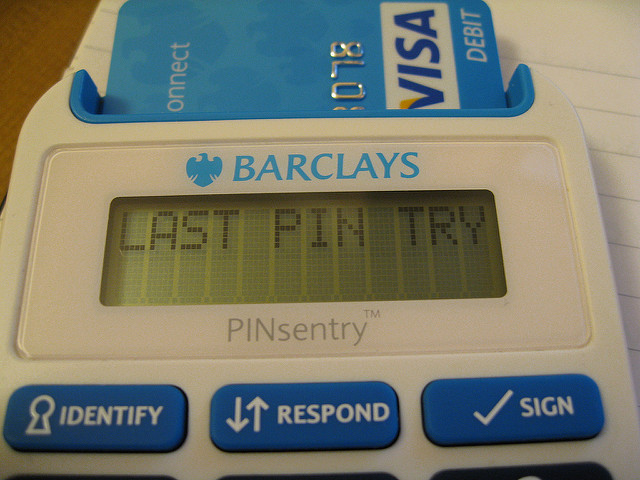Barclays now lets people block certain types of spending, including anything at supermarkets, pubs, and betting shops.
What it means: Ever look at your bank statement and curse yourself for your lack of impulse control when it comes to buying pub rounds / hangover takeaways / votes for John Barrowman to win I’m a Celebrity (we can’t be the only ones who think he was robbed of the crown, right?).
Well, Barclays may have just come to your rescue, cos it now lets debit card holders block certain types of transactions. With a couple of taps, your card will no longer work in any bar, restaurant, gambling shop, petrol station, voting phone lines, porn sites and more.
The idea is to help people, especially vulnerable ones, get a better handle on their finances. MoneySavingExpert, a popular website which gives people advice on penny pinching, is keen on the idea. So are charities that work with addicts. And there’s evidence that the tool works: Monzo, the new bank with a neon card, that all the hipsters fell in love with, says gambling spending went down 70 percent after it allowed customers to advance-block those type of transactions.
These spending block tools are examples of nudging: a psychological technique that some economists (called behavioural economists) pioneered. Behavioural economists think that we need a bit of help making decisions, because we don’t always make the choices that would make us happiest.
They figure we can be a bit lazy and like to do what’s easiest, plus we’re too easily influenced by what’s going on around us. Ever chomped through an entire packet of biscuits because they’re right there, even though you didn’t really want them? Or bought clothes/music/event tickets you didn’t like because it was fashionable or all your friends were into it? That’s the sorta thing behavioural economists are talking about.
Nudging is any little thing that is designed to encourage us to make better choices - like putting unhealthy biscuits on a higher and harder-to-reach shelf than healthy fruit. Nudges don’t force people to do anything but they still have huge impacts on behaviour.
Read our explainer on behavioural economics and nudging.

